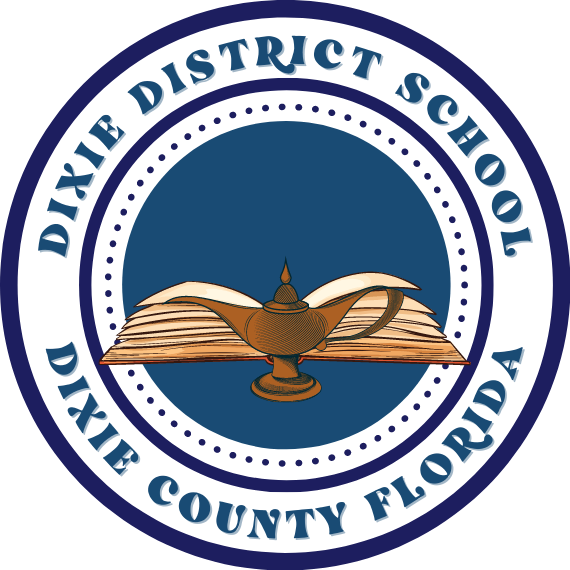CHAPTER 7.00-BUSINESS SERVICES
7.117 Food Service Procurement
The following procurement policy statement shall govern all purchasing activities that relate to any aspect of the National School Lunch and Breakfast Programs. This statement is meant to provide guidance to our personnel and vendors on acceptable and/or required procurement practices. Our goal is to fully implement all required and recommended procurement rules, regulations and policies set forth in 7 CFR 210, 2 CFR 200., and by the State Agency.
The purchasing procedure to be followed shall be determined by the anticipated total annual expenditure on items related to the food service program:
- When the annual total for food service program related items is less than $50,000 per year (per procurement event or in aggregate purchases) this organization will follow the informal Small Purchase Procedure.
- When the annual total for food service program related items is greater than $50,000 per year (per procurement event or in aggregate purchases), this organization will follow the Formal Competitive Solicitation Procedures.
Procurement procedures apply to the purchasing of vended meals, equipment, food/groceries, and services (e.g., pest control).
(1) SMALL PURCHASE PROCEDURES
For purchases made below the small purchase threshold, a Small Purchase Procedures will be utilized be purchase necessary goods and services. When Small Purchase Procedures are used, this organization will take the following steps:
(a) Contact a minimum of three potential vendors.
(b) Document each vendor’s quoted price.
(c) Select the company that provides the lowest, most responsive, and responsible bid.
(d) Inform all bidding companies in writing of the final decision made by the sponsor.
(e) Write contract for meal service between the sponsor and the winning bidder.
(2) FORMAL COMPETITIVE SOLICITATION PROCEDURES
For purchases made in excess of the small purchase threshold, a Formal Competitive Solicitation will be conducted. When Formal Competitive Solicitation Procedures are used, this organization will take the following steps:
(a) Prepare an ITB or RFP document specifically addressing the items to be procured.
(b) Publicly announce and advertise the bid/proposal at least 14 calendar days prior to bid opening.
1. Announcements will include the date, time and location in which bids will be opened.
(c) Determine the most responsive and responsible bid/proposal by using the selection criteria set forth in the bid/proposal document.
1. Responsive bidders will be those whose bid/proposal conform to all of the terms, conditions and requirements of the ITB/RFP.
(d) Award the contract
1. Sponsors should award the contract to the most responsive and responsible bidder based on the criteria set forth in the ITB/RFP.
2. The sponsor should award the contract at least two weeks before program operations begin.
3. If a protest is received, it must be handled in accordance with Chapter 120.57(3), Florida Statutes.
(e) Retain all records pertaining to the formal competitive bid process for a period of five years plus the current year.
Note: If the bid threshold established in the sponsor’s procurement policy statement is less than $150,000, the smaller bid threshold will govern.
This organization incorporates the following elements into the Procurement Policy Statement, as required by 7 CFR 210 and 2 CFR 200.
(3) COMPETITION: We shall demonstrate our goods and services are procured in an openly competitive manner.
(4) COMPARABILITY: We recognize for true competition to take place, we must maintain reasonable product specifications to adequately describe the products to be purchased and the volume of planned purchases based upon pre-planned menu cycles.
(5) UNNECESSARY AND DUPLICATIVE ITEMS: We shall avoid acquisition of unnecessary or duplicative items. Consideration will be given to consolidating or breaking out procurements to obtain a more economical purchase. Where appropriate, an analysis will be made of lease versus purchase alternatives, and any other appropriate analysis to determine the most economical approach.
(6) DOCUMENTATION: We shall maintain for the current year and the preceding three years all menus, production records, invitations to bid, bid results, bid tabulations or any other significant materials that will serve to document our policies and procedures.
(7) CODE OF CONDUCT: This program shall be governed by the attached Code of Conduct and it shall apply to all personnel, employees, directors, agents, officers, volunteers, or any person(s) acting in any capacity concerning the food service procurement program.
(8) PROCUREMENT REVIEW PROCESS: This procurement plan shall receive an internal program review on an annual basis by a staff person who is not associated with food service procurement process. This review shall be summarized in written form and kept with the other required program documentation.
(9) CONTRACT ADMINISTRATION: Purchases shall be checked or verified by designated staff to assure that all goods and services are received and prices verified. All invoices and receipts shall be signed, dated, and maintained in the documentation file.
“In accordance with Federal civil rights law and U.S. Department of Agriculture (USDA) civil rights regulations and policies, the USDA, its Agencies, offices, and employees, and institutions participating in or administering USDA programs are prohibited from discriminating based on race, color, national origin, religion, sex, gender identity (including gender expression), sexual orientation, disability, age, marital status, family/parental status, income derived from a public assistance program, political beliefs, or reprisal or retaliation for prior civil rights activity, in any program or activity conducted or funded by USDA (not all bases apply to all programs). Remedies and complaint filing deadlines vary by program or incident.
Persons with disabilities who require alternative means of communication for program information (e.g., Braille, large print, audiotape, American Sign Language, etc.) should contact the responsible Agency or USDA's TARGET Center at (202) 720-2600 (voice and TTY) or contact USDA through the Federal Relay Service at (800) 877-8339. Additionally, program information may be made available in languages other than English.
To file a program discrimination complaint, complete the USDA Program Discrimination Complaint Form, AD-3027, found online at How to File a Program Discrimination Complaint and at any USDA office or write a letter addressed to USDA and provide in the letter all of the information requested in the form. To request a copy of the complaint form, call (866) 632-9992. Submit your completed form or letter to USDA by: (1) mail: U.S. Department of Agriculture, Office of the Assistant Secretary for Civil Rights, 1400 Independence Avenue, SW, Washington, D.C. 20250-9410; (2) fax: (202) 690-7442; or (3) email: program.intake@usda.gov.
USDA is an equal opportunity provider, employer, and lender.”
STATUTORY AUTHORITY: 1001.42; 1001.43, F.S.
LAWS IMPLEMENTED: 112.312; 120.53; 120.57; 212.08; 1001.43; 1010.01;1010.04; 1011.06;
STATE BOARD OF EDUCATION RULES: 6A-1.012; 6A-1.087; 6A-7.042
History:
Adopted: March 13, 2018
Revision Date(s):
Formerly:


